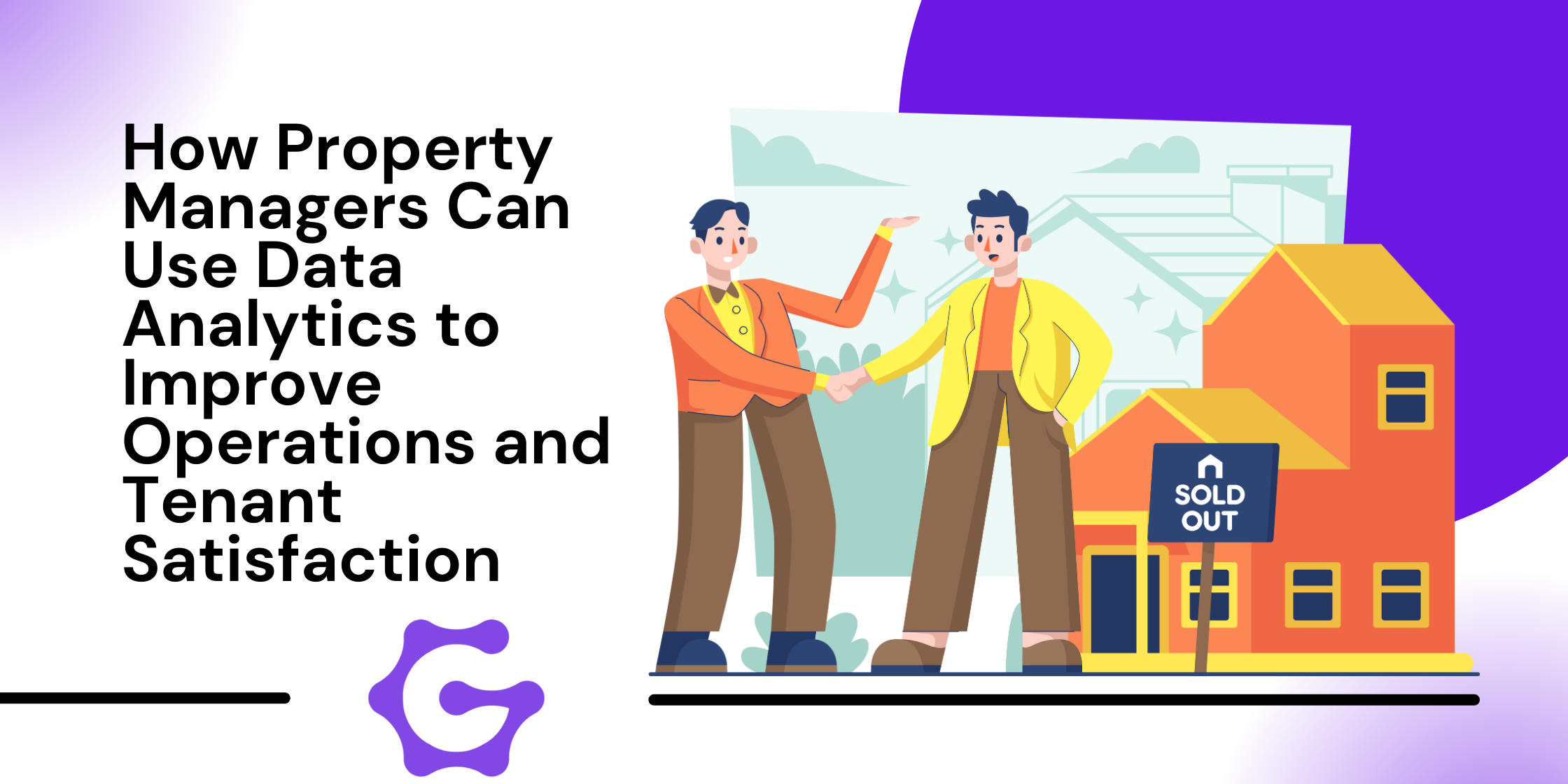Real Estate Data Analytics for Property Managers

Less stress, more efficiency—that’s the future you’re looking at when you use data analytics. Regardless of the industry you work in, data analytics has become an essential part of decision making. In the real estate industry, property managers can leverage data to enhance operations and make tenants so happy they could write their landlord love letters. This helps to make better informed decisions, optimize property management processes, and provide better living experiences (for themselves too since there’s less stress!). Here’s how data analytics can give you that edge.
1. Property Operations Made Easy
Managing property operations is chaotic, unpredictable, and requires a lot of patience. Luckily enough for property managers, data analytics enables little tricks that streamline operations by providing insight into each facet of their business. Through data collection, property managers can:
- Monitor Property Performance: Occupancy rates, rent collection, maintenance costs, and utility consumptions are just some of the data indicators collected by property managers in order to visualize trends and areas of improvement.
- Optimize Maintenance Schedules: Using predictive analytics, property managers can keep track of maintenance needs. Overall, it keeps you ahead of the curve (curbing any unexpected issues), but it also prevents costly repairs and minimizes downtime. For example, if you have a suite of data for your equipment performance it can indicate when it’s time for servicing long before a breakdown occurs.
- Enhance Resource Allocation: Just as in every other industry, real estate and property managers also have to allocate resources effectively and efficiently. Using the data you collect can help you dictate where resources are most needed, reducing waste and improving productivity.
2. Improving Tenant Satisfaction
In order for property managers to keep their job, tenant satisfaction is something that has to be monitored and managed. Happy tenants mean fewer headaches and fewer midnight calls about broken boilers. Data analytics can help understand and enhance tenant experience:
- Personalized Services: Analyze tenant preferences and behaviors to offer more personalized services and amenities. For example, having data and interpreting it for demographics and usage patterns can help you make decisions on community events or facility upgrades.
- Timely Communication: This will help you identify the most effective communication channel and time for reaching out to tenants when you have to. No more missed messages or miscommunications.
- Addressing Concerns: Feedback and service request data can be a goldmine for improvement. Pay attention and identify common issues and address them proactively.
3. Enhancing Financial Performance
Not only can you make more decisions in terms of the tangible situations (tenants, events, etc.), however, analytics can also help you make better financial decisions as a property manager.
- Rent Optimization: Using data such as the surrounding housing market and historical trends you can work to set more competitive rental rates that maximize the property’s profitability and occupancy. Dynamic pricing can adjust rates based on the demand of housing as well as local market conditions.
- Expense Management: Cost can be reduced, all the time, right? Well when you have data available that allows you to analyze expenditure patterns the answer is yes. For example, bulk purchasing of supplies or renegotiating vendor contracts based on usage data.
- Investment Decisions: Leverage data to evaluate property performance (financially) and make better investment decisions.
4. Ensuring Regulatory Compliance
Regulations are the rule of the land… Don’t miss out on following and optimizing your local regulations. Data analytics can help property managers stay compliant with regulations.
- Compliance Tracking: It’s not really data, however, you can monitor compliances with local, state, and federal regulations such as tracking inspection schedules, lease agreements, and more.
- Risk Management: Analyze and identify potential risks and implement measures to mitigate them.
Takeaways
If you’re a property manager not using data analytics, you’re doing it wrong. Using data, property managers can make better informed decisions, provide better experiences and services to tenants. Eventually all of your hard work with analyzing your data will lead to better property management as well as a better property value. Remember, embracing data analytics is no longer optional, but necessary for modern property management. Become the property management guru you were meant to be.